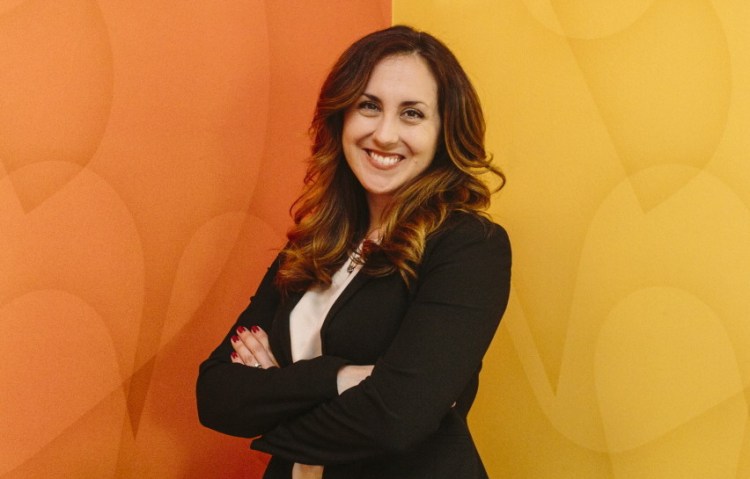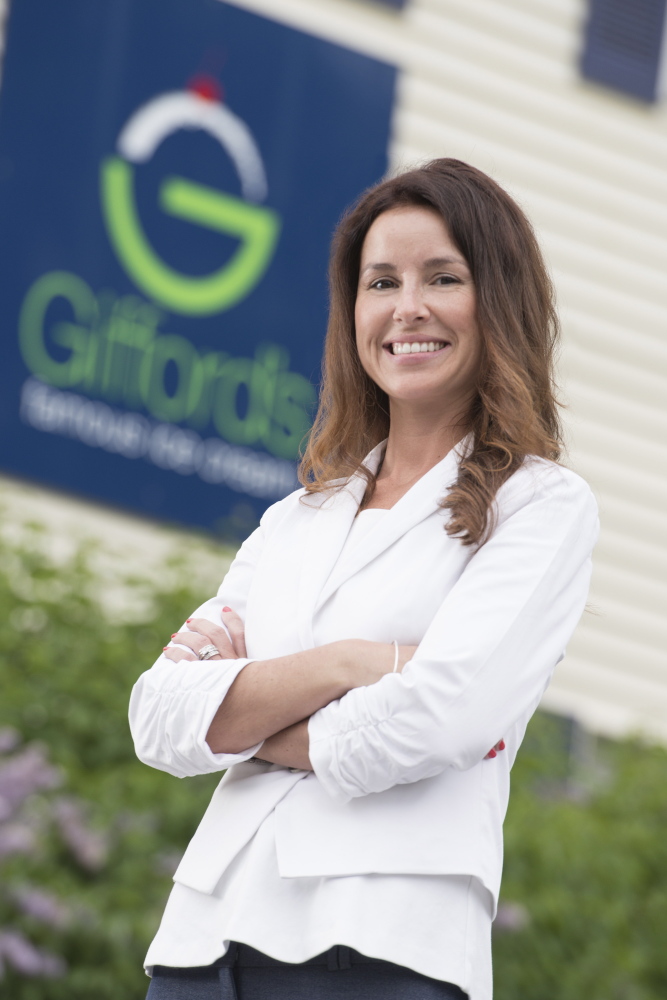Kimberly Garrett had no intention of going into the family business. In fact, her father actively discouraged it.
Not because Ed Wolak, founder of The Wolak Group in Falmouth, thought his daughter couldn’t handle getting up at the crack of dawn each day to make the doughnuts at the company’s small chain of Dunkin’ Donuts franchises.
Running a doughnut shop can be a tiring and thankless job. Garrett remembers her father coming home with burns on his arms from being splashed with hot oil.
Garrett went off to college, then pursued careers in the film and wine industries in California, got married and became a mother. Meanwhile, The Wolak Group was rapidly growing and changing back in Maine. It grew to more than 70 franchises in three states, and the company opened an automated production facility with more than enough capacity to supply doughnuts and other baked goods to all of its stores.
Like a growing number of family business owners, Wolak eventually asked his daughter to join the company – which now owns nearly 100 Dunkin’ Donuts stores – in an executive role.
“There was so much at stake from what he had grown,” said Garrett, who is now Wolak Group vice president of operations and a franchise owner herself. “I didn’t feel there was anybody else as fit to protect that as I was.”
Nationally, the share of family-owned businesses headed by women has increased sixfold since 1997. At that time, only 5 percent of such businesses had a woman in the top executive role, according to a survey conducted by Mass Mutual and Arthur Andersen.
By 2014, that share had increased to 30 percent, according to the Family Firm Institute, a Boston-based trade association for family-owned businesses. Over the next 20 years, daughters are expected to eclipse sons as the go-to offspring for taking over the family business, it said.
Maine’s family-owned business community is dominated by companies with male top executives, but more women have been rising through the ranks, said Catherine Wygant Fossett, executive director of the Portland-based Institute for Family-Owned Business, which hosted its 2015 Maine Family Business Awards ceremony Monday night.
Of the Maine institute’s more than 65 member businesses, eight are led by women – about 12 percent. Even so, Wygant Fossett said 40 to 50 women regularly participate in the institute’s training and leadership-development programs.
The institute has created a number of programs aimed at women executives in recent years, she said. It even has a program to teach golf to its female members who aren’t proficient at the game.
“A lot of times in the business world, a lot of work is done on the golf course,” Wygant Fossett said.
The institute started a Women’s Affinity Group in 2011 to specifically address some of the issues that confront women in leadership positions within family-run businesses. The group members offer support and advice to each other and an opportunity to collaborate, providing encouragement not only as women, but as leaders in family-run businesses, which often don’t survive past the third generation.
One reason that more women are being groomed to take over the family business is that women have surpassed men as the gender more likely to enroll in college, said Jane Hilburt-Davis, institute president emeritus and a board member.
In 2012, the share of young women enrolled in college immediately after high school was 71 percent, compared with 61 percent for young men, according to an analysis by the Pew Research Center. Just a decade earlier, the share of young men and women enrolling in college was roughly the same.
Hilburt-Davis, president of Key Resources LLC, a consulting firm to family-business owners, said they often look to the best-educated child as the lead candidate for succession. In a growing number of cases, that child is a daughter.
“Twenty years from now, we know more women will be leading family-owned businesses than men,” she said.
Although some daughters are poised to take over national firms – as Abigail Johnson, granddaughter of Fidelity Investments founder Edward C. Johnson II, did in 2014 – it is much more common for women to take over smaller, family-run companies where the hierarchy isn’t as deep. Nationally, only 4.8 percent of Fortune 500 companies were headed by women in 2014.
Lindsay Gifford Skilling, general manager of Skowhegan-based Gifford’s Famous Ice Cream, always hoped to work for the premium ice cream business started by her grandparents and developed further into the company it is today by her father and uncle.
“I knew at a young age that I wanted to join the family business, if they’d have me,” she said.
Gifford Skilling earned a bachelor’s degree in business administration, and in 2006 joined Gifford’s as assistant to the controller. Since then she has risen rapidly to the top management position. Her brother, John Chester “JC” Gifford Jr., and sister, Samantha Gifford, also hold leadership positions within the company.
Gifford ice cream, which is closing in on annual production of 2 million gallons per year, is sold at its five ice cream stands and at hundreds of grocery stores, independent ice cream shops, colleges, universities and restaurants as far west as Nevada.
Gifford Skilling, who is 31, said it was intimidating at first to be a young female executive in an industry dominated by men. But with support from her family and an eagerness to learn, she developed the confidence to run a successful and fast-growing business.
“My dad and uncle just kind of saw something in me, I guess, so here I am,” she said.
Send questions/comments to the editors.





Success. Please wait for the page to reload. If the page does not reload within 5 seconds, please refresh the page.
Enter your email and password to access comments.
Hi, to comment on stories you must . This profile is in addition to your subscription and website login.
Already have a commenting profile? .
Invalid username/password.
Please check your email to confirm and complete your registration.
Only subscribers are eligible to post comments. Please subscribe or login first for digital access. Here’s why.
Use the form below to reset your password. When you've submitted your account email, we will send an email with a reset code.